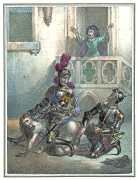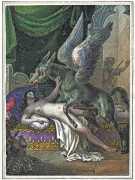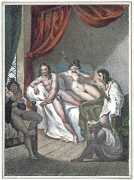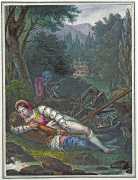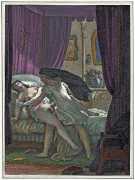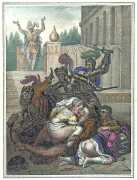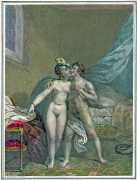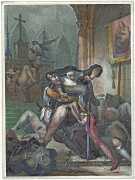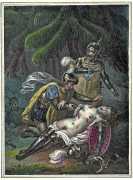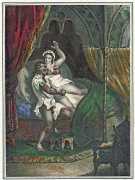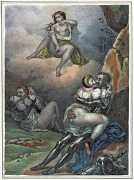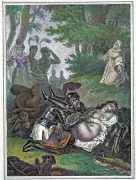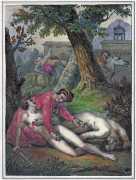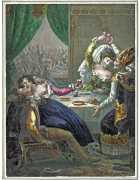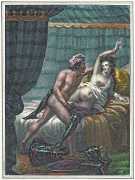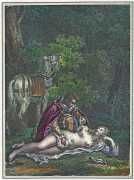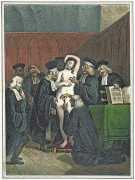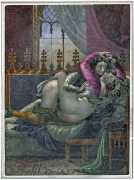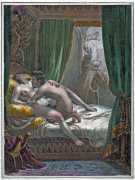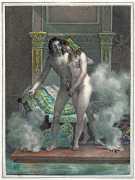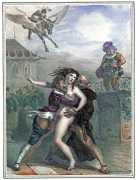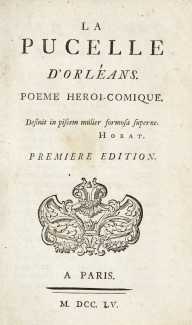
François-Marie Arouet, better known by his pen name Voltaire, was one of the most controversial writers and philosophers of the French Enlightenment, and the satirical poem La Pucelle d’Orléans (The Maid of Orleans) was one of his more contentious works. An epic and scandalous satire concerning the life of the not-yet-canonised Joan of Arc, the poem was outlawed, burned and banned throughout a great portion of Europe during the eighteenth and nineteenth centuries. Containing mockery and satirical commentary on the life and antics of its subject, the poem was regularly described as bawdy and licentious. Though he started writing the text in 1730, Voltaire never completed it.
Despite the often sexist and indecent contents of the text, its notoriety and contraband status made it one of the most widely read texts concerning Joan of Arc for several centuries. Circulating throughout the banned regions by often-surreptitious means, the book was read by a large proportion of the populace. It was also disseminated by Voltaire himself to some of his colleagues and other members of the upper classes, the circle of people and for which the text had been specifically intended.
La Pucelle was a ready-made vehicle for a set of erotic Devéria plates, though he took the precaution of signing the plates ‘London’ just in case prosecution ensued. He depicts Joan consorting with a variety of clergy and nobles before turning to arms in the siege of Orléans and being burnt at the stake by the dastardly English.
We are very grateful to Hans-Jürgen Döpp for these images; Hans-Jürgen, the compiler of many books on erotic art, curates the Venusberg online gallery and bookshop which you can find here.


